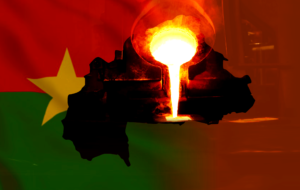Trump Unveils Gaza Peace Plan Backed by Global Leaders, But Hamas Yet to Agree
The United States has unveiled a new plan to end the devastating war in Gaza, offering a roadmap that blends hostage exchanges, reconstruction aid, and transitional governance. Announced at the White House by former President Donald Trump alongside Israeli Prime Minister Benjamin Netanyahu, the initiative has drawn cautious praise from European and Middle Eastern governments. Yet the biggest question remains unanswered: will Hamas agree?
At its heart, the 20-point proposal seeks to halt a conflict that has torn through the fabric of families, communities, and entire societies since October 2023. It calls for an immediate ceasefire, the release of 20 Israeli hostages within three days, and the return of dozens of bodies, in exchange for hundreds of Palestinian detainees. Beyond that, the plan envisions sweeping changes to Gaza’s governance and economy, overseen by an international body chaired by Trump himself, with former UK Prime Minister Tony Blair expected to serve on the panel. In regards to the Israeli families of hostages, the plan offers a sliver of hope after nearly a year of anguish. The proposed return of captives within 72 hours could ease some of the most personal scars of the war. For Palestinian families, many of whom have seen loved ones detained, displaced, or killed, the release of prisoners and the promise of reconstruction brings cautious relief. Yet the plan’s condition that Hamas will have no role in Gaza’s governance leaves many residents wondering who will represent their voices in the years ahead.
![]()
The war has claimed more than 66,000 Palestinian lives, according to Gaza’s health ministry, and left much of the territory in ruins. The cultural identity of Gaza, such as place of markets, schools, centuries-old traditions, etc., now risks being reduced to rubble unless reconstruction moves beyond bricks and mortar to preserve community life. A UN-backed report confirming famine conditions underscores that this is not just a geopolitical crisis but a deeply human one, touching on survival, dignity, and the right to live with cultural continuity.
Rebuilding Gaza is not only a humanitarian necessity but also a business opportunity. The plan envisions large-scale international investment, from infrastructure to trade. Gulf States such as Qatar, Saudi Arabia and the UAE have already signaled willingness to channel billions into reconstruction, while European powers see a chance to stabilize the region through economic renewal. For global markets, peace could unlock new trade routes and energy corridors, but the success of such investment hinges on whether political guarantees hold.
Trump hailed the plan as “a historic day for peace” warning Hamas that rejection would lead to US support for Israel to “finish the job of destroying the threat”. Netanyahu echoed that threat, but simultaneously reiterated his opposition to a Palestinian state, an inconsistency that casts doubt on the long-term political vision.
Even so, the Palestinian Authority has cautiously welcomed Washington’s efforts, signaling cooperation with regional partners. European leaders, from France’s Emmanuel Macron to the UK’s Keir Starmer, described the initiative as a “potential turning point,” while Arab states stressed that any settlement must pave the way for a two-state solution.
Hamas, however, has signaled resistance. A senior official insisted that Israel must withdraw fully from Gaza and that Palestinians’ right to a state based on 1967 borders cannot be compromised. He also called Hamas’s weapons a “red line” until occupation ends, reflecting the deep mistrust that could derail the plan.
The war has polarized societies far beyond Gaza. In Israel, the hostage crisis has divided public opinion between those pushing for compromise and those demanding military victory. Among Palestinians, anger simmers over decades of displacement and inequality, raising questions about whether a technocratic committee can truly represent the people. Globally, the conflict has sparked protests, fractured diaspora communities, and placed pressure on Western governments struggling to balance human rights concerns with strategic alliances.
The Gaza peace plan stands as both a political gamble and a humanitarian lifeline. Its success depends not only on agreements signed in distant capitals but on whether families, communities, and societies on the ground can find trust amid rubble and grief.
As famine deepens and accusations of genocide fuel diplomatic fallout, the cost of failure grows heavier by the day. Whether Hamas accepts the proposal or resists, one fact remains clear: the future of Gaza is no longer just a regional issue, but a test of how the world confronts war, justice, and the fragile possibility of peace.








